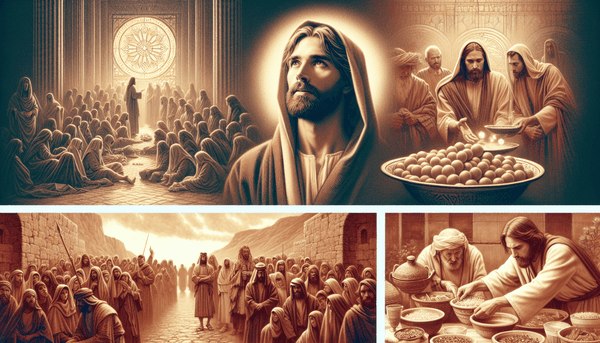Fasting in Christianity: Purpose and Interaction
Christian fasting is more than abstention from food; it's a spiritual discipline intended for reflection and increased communion with God. It is a time where followers seek to strip away distractions, as advised in Matthew 6:16-18, to focus on prayer and spiritual growth. While the Bible doesn't specifically address speaking with the opposite sex during fasting, it emphasizes maintaining pure intentions and respectful interactions, in line with the spirit of fasting. The early church, as seen in Acts 13:2-3, practiced fasting in conjunction with worship, suggesting a communal aspect to this spiritual discipline. This indicates that while fasting is a time for individual reflection, it does not necessitate complete social isolation.
The Resurrection of Jesus: Its Event and Impact
The resurrection of Jesus is the cornerstone of Christian faith, a testament to His divine authority and the fulfillment of scriptural prophecy. On the third day following His crucifixion, Jesus rose from the dead, an event that transformed His disciples and ignited the early church. This miraculous event is echoed in Luke 24:6-7, where the angel announces Jesus' resurrection to the bewildered women at the tomb. The resurrection not only validated Jesus' claims of divinity but also His power over death, as celebrated in Acts 2:24. It is this triumph that reinforces the Christian hope in the promise of eternal life.
Practical Implications for Believers
The resurrection of Jesus is not an abstract doctrine but an event with tangible effects on the lives of believers. It offers not only the hope of personal resurrection but also a call to embody the transformative power of Christ in everyday life. This is the 'new life' Paul speaks of in 1 Corinthians 15:3-4, one that should be marked by the joy and hope of the resurrection. Believers are encouraged to live in a way that is consistent with the resurrection power, an empowering force enabling them to overcome the struggles of life with the same strength that raised Christ from the dead, as told in John 11:25-26.
Conclusion
In conclusion, the Christian practices of fasting and the event of Jesus' resurrection are deeply interwoven into the fabric of the faith. Fasting serves as a spiritual discipline that enhances one's focus on God, and does not preclude respectful dialogue with others. The resurrection, on the other hand, stands as a beacon of hope, affirming Jesus' divine authority and offering believers the promise of eternal life. Both elements invite Christians to deeper reflection and commitment to their faith, reminding them that through these practices they are connected to the divine narrative that shapes their identity and purpose.
FAQ
Q: Darf man während dem fasten mit dem weiblichen Geschlecht reden?
A: Während des Fastens gibt es in der Bibel keine spezifische Anweisung, dass man nicht mit dem weiblichen Geschlecht sprechen darf.
Q: Wieviele Tage nach dem Tod ist Jesus wiederauferstanden?
A: Jesus ist am dritten Tag nach seinem Tod auferstanden.
Q: Welche Bedeutung hat die Auferstehung Jesu?
A: Die Auferstehung Jesu hat eine zentrale Bedeutung im christlichen Glauben. Sie symbolisiert die Überwindung des Todes und die Verheißung des ewigen Lebens. Sie bestätigt auch die göttliche Natur Jesu und seine Autorität über Leben und Tod.
Q: Welche Bedeutung hat die Auferstehung Jesu für Christen?
A: Für Christen ist die Auferstehung ein Zeichen der Hoffnung und ein Fundament des Glaubens, das die Vergebung von Sünden und das Versprechen des ewigen Lebens durch Jesus Christus darstellt.






